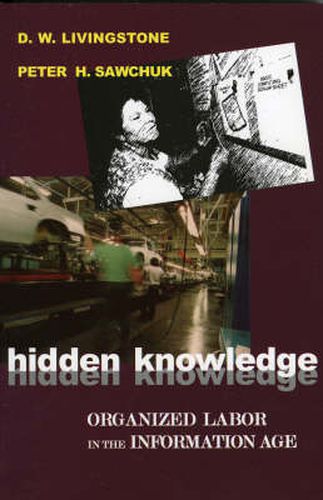Readings Newsletter
Become a Readings Member to make your shopping experience even easier.
Sign in or sign up for free!
You’re not far away from qualifying for FREE standard shipping within Australia
You’ve qualified for FREE standard shipping within Australia
The cart is loading…






Offering an original contribution to understanding an often-ignored aspect of our much-heralded knowledge-based economy, this book decisively explodes the dual myths that working-class adults have inferior learning capacities and that talented youths naturally leave blue-collar careers. Livingstone and Sawchuk document the genuine learning practices of working-class people in unprecedented detail, using richly textured accounts of prior school experiences; current adult education course participation; and a wide array of learning resources in paid workplaces, households, and community settings. Criticizing dominant theories, the authors develop a powerful alternative explanation of working-class adult learning. Their analysis, grounded in the specific practices of everyday life, includes workers’ own practical recommendations for changes in learning and work relations.
$9.00 standard shipping within Australia
FREE standard shipping within Australia for orders over $100.00
Express & International shipping calculated at checkout
Offering an original contribution to understanding an often-ignored aspect of our much-heralded knowledge-based economy, this book decisively explodes the dual myths that working-class adults have inferior learning capacities and that talented youths naturally leave blue-collar careers. Livingstone and Sawchuk document the genuine learning practices of working-class people in unprecedented detail, using richly textured accounts of prior school experiences; current adult education course participation; and a wide array of learning resources in paid workplaces, households, and community settings. Criticizing dominant theories, the authors develop a powerful alternative explanation of working-class adult learning. Their analysis, grounded in the specific practices of everyday life, includes workers’ own practical recommendations for changes in learning and work relations.